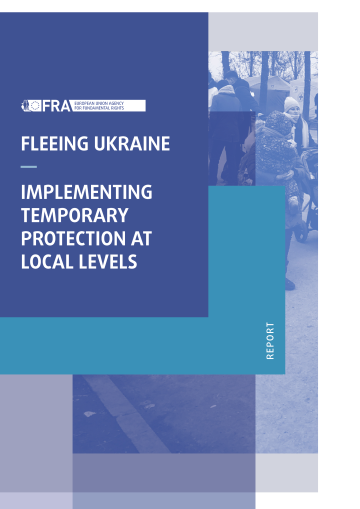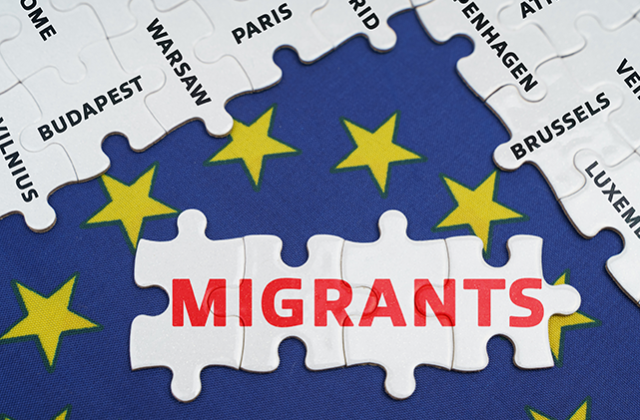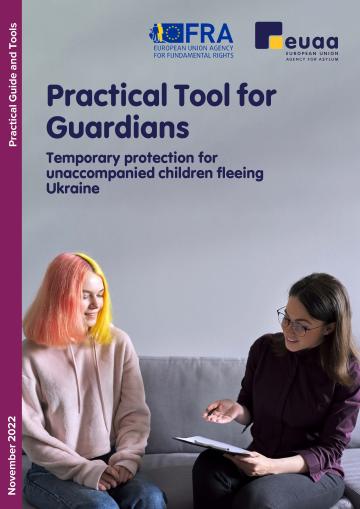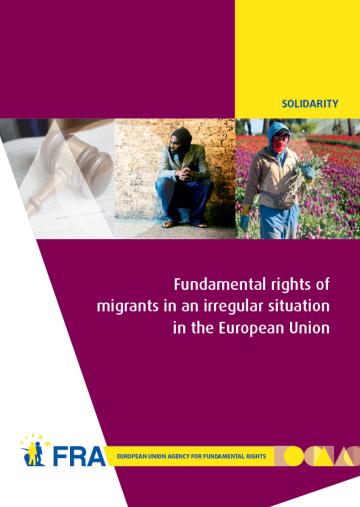Austria
Legal basis:
- Administrative decree of the Federal Ministry of Labour (2022-0.178.109, not published), regulating the granting of employment permits under facilitated conditions for people displaced from Ukraine, is no longer valid since the amendment to the AuslBG, Federal Law Gazette I No. 43/2023, on 21 April 2023. Since then, people displaced from Ukraine who have a temporary right of residence according to the Displaced Persons Ordinance and who have a displaced person’s ID card are generally exempt from the scope of the AuslBG and can take up any employment without permit, that is, under the same conditions as Austrian nationals.
Self-employment: Yes
Vocational training: Yes
Belgium
Legal basis:
- According to the Royal Decree of 2 September 2018, beneficiaries of temporary protection are authorised to work on condition they are in possession of their residence permit or the document they receive while awaiting the delivery of their residence permit.
- According to the Royal Decree of 3 February 2003, beneficiaries of temporary protection do not need a professional card to be self-employed in Brussels or Flanders. They are, however, obliged to register at one of the accredited business counters.
- Law of 9 May 2018 on the occupation of foreign nationals in a special residence situation, in particular its Article 5.1, which entered into force on 24 December 2018
- Royal Decree of 2 September 2018 implementing the Law of 9 May 2018 on the occupation of foreign nationals in a special residence situation, in particular its Article 10 (6), added by Royal Decree 2022-03-29/05, Article 1, 005, which entered into force retroactively on 4 March 2022
- Royal Decree of 30 July 2022 amending the Royal Decree of 3 February 2003 exempting certain categories of foreigners from the obligation to hold a professional card in order to exercise a self-employed professional activity, which entered into force on 20 August 2022
Self-employment: Yes
Vocational training: Yes
Czechia
Legal basis:
- Act No. 221/2003 Coll. on Temporary Protection of Aliens
- Act No. 66/2022 Sb. on measures in the area of employment and social security relating to the armed conflict within the territory of Ukraine caused by an invasion of the army of the Russian Federation provides for rules on access to the labour market, for instance. It was approved through an accelerated procedure in March 2022, effective as of 21 March 2022, and in place for a limited term until 31 March 2024 (as amended by Act No. 198/2022 Sb., effective as of 30 June 2022, and Act No. 20/2023 Sb., effective as of 24 January 2023). The act was originally introduced for a term of one year and extended for an additional year.
- Act No. 67/2022 Sb. on measures in the area of education relating to the armed conflict within the territory of Ukraine caused by an invasion of the army of the Russian Federation regulates how individuals can document their education. It was approved through an accelerated procedure in March 2022, effective as of 21 March 2022 and in place for a limited term until 31 August 2024 (as amended by Act No. 199/2022 Sb., effective as of 30 June 2022, and Act No. 20/2023 Sb., effective as of 24 January 2023). The act was originally introduced for a term of one year and extended until 31 August 2024.
- Act No. 198/2009 Sb., the Anti-Discrimination Act, prohibits any discrimination on the basis of nationality. This act was adopted on 29 June 2009 and is effective as of 1 September 2009.
- Act No. 262/2006 Sb., the Labour Code, defines the principle of equal treatment concerning all third-country nationals lawfully residing and working in Czechia, and the principle of equal pay for equal work/work of equal value. This act was adopted on 7 June 2006 and is effective as of 1 January 2007.
- Act No. 435/2004 Sb., the Employment Act, provides rules on the labour offices, including the fact that all jobseekers can use their support. It was adopted on 27 July 2004 and is effective as of 1 October 2004.
Self-employment: Yes
Vocational training: Yes
Estonia
Legal basis:
- Protection Law
- Amendment Law of the Protection Law and the Aliens Act (Amendment Law)
- Government Regulation of 15 March 2022
- Aliens Act
Self-employment: Yes
Vocational training: Yes
France
Legal basis:
- Article L 5221-2 of the French Labour Code provides that beneficiaries of temporary protection are authorised to exercise a professional activity, as long as they have the documents and visas required by the international and national legislation in force.
- Article R581-4 (1 and 2) of the Code of entry and residence of foreigners and right to asylum stipulates that a beneficiary of temporary protection is granted a temporary residence permit, valid for six months (renewable).
Self-employment: Yes
Vocational training: Yes
Germany
Legal basis:
- Immigration Act of 5 August 2004 (BGBl. I S. 1950), effective as from 1 January 2005
Self-employment: Yes
Vocational training: Yes
Ireland
Legal basis:
- Terms of Employment (Information) Acts, 1994–2014 (entered into force on 16 May 1994)
- National Minimum Wage Act, 2000 (entered into force on 1 April 2000)
- Organisation of Working Time Act, 1997, covering a number of employment conditions, including maximum working hours, night work, annual leave and public holiday leave
- Maternity Protection Act, 1994 (entered into force on 19 October 1994)
- Safety, Health and Welfare at Work Act 2005 (as amended) replacing the provisions of the Safety, Health and Welfare Act 1989 (entered into force on 1 September 2005)
- Employment Equality Acts, 1998–2015, banning discrimination, including gender, civil status, family status, age, race, religion, disability, sexual orientation and membership of the Traveller community (entered into force in October 1999)
- Redundancy Payments Acts, 1967–2014, providing for minimum entitlements to a redundancy payment for employees who have a set period of service
Self-employment: Yes
Vocational training: Yes
Italy
Legal basis:
- Article 7 of the Ordinance of the Head of the Civil Protection Department No. 872 of 4 March 2022, regulating access to work for people coming from Ukraine as an exception to the regulations in force
- Legislative Decree No. 215 of 9 July 2003 implementing Directive 2000/43/EC on equal treatment between persons irrespective of racial or ethnic origin, published in Official Gazette No. 186 of 12 August 2003, in force from 27 August 2003
- Legislative Decree No. 216 of 9 July 2003 implementing Directive 2000/78/EC on equal treatment in employment and occupation, published in Official Gazette No. 187 of 13 August 2003, in force from 28 August 2003
Self-employment: Yes
Vocational training: Yes (access to ‘vocational training or internships in enterprises for temporary protection holders refers to general access for all jobseekers, so there are no special channels or specific opportunities)
Poland
Legal basis:
- Act of 12 March2022 on assistance to Ukrainian citizens in connection with the armed conflict on the territory of this state
- Act of 13 June 2003 on granting protection to foreigners on the territory of the Republic of Poland
- Act of 20 April 2004 on the promotion of employment and labour market institutions, in force since 1 June 2004
- Act of 6 March 2018 – provisions introducing the Entrepreneurs Act and other acts concerning economic activity, in force since 30 April 2018
- Act of 6 March 2018 on the rules for the participation of foreign entrepreneurs and other foreign persons in economic transactions on the territory of the Republic of Poland, in force since 30 April 2018
Self-employment: Yes
Vocational training: Yes
Romania
Legal basis:
- Government Ordinance No. 25/2014 on the hiring and posting of foreigners in Romania, as well as for the amendment of certain legal enactments as regards the foreigners regime in Romania (GO 25/2014)
- Bilateral agreement between Romania and Ukraine on the mutual recognition and equivalence of education documents and academic degrees, signed in Bucharest, on 19 February 1999
Self-employment: Yes
Vocational training: Yes
Slovakia
Legal basis:
- Act on Certain Other Measures in Connection with the Situation in Ukraine, known as the Lex Ukraine, entered into force on 30 March 2022.
Self-employment: Yes
Vocational training: Yes
Sweden
Legal basis:
- Chapter 21, Section 7, of the Aliens Act states that a person who is granted a residence permit with temporary protection shall be granted a work permit valid for the entire period of temporary protection.
Self-employment: Yes
Vocational training: Yes











